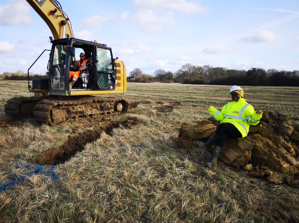So, you want to be the highest paid Civil Engineer on your team? Here’s how to do it.
All companies in Great Britain with more than 250 employees are required to report on their gender pay gap under the Equality Act 2010. Findings from this year have revealed that construction has the worst gender pay gap in the UK. The sector employs around 3 million people in the UK, only 13% of these workers are women, and they are paid 12% less, on average, than men in the same role.
This needs to change and, with research like the McKinsey & Company study that proves employing women in large numbers leads to increased profitability, construction businesses are realising that more female workers would benefit the sector. Furthermore, to improve their reputations as fair employers, companies such as Balfour Beatty, Mace, and Bouygues need to rectify their edifying gender pay gaps.
Solidarity between women in the construction sector is one way to ensure that females remain in the field; trends suggest that women leave construction just as quickly as those who are entering it. This is why conferences such as Women in Construction Europe, taking place 5-6 December, are so important. Meeting fellow females in construction increases the opportunity for mentoring and inspires young women to aim for top positions in the field.
While the sector itself is at fault, you can still do all you can to buck the trend and achieve the same as male civil engineers in your construction business. Here’s how you go about it.
Women in Construction Europe is coming to Amsterdam on 5-6 December. To request a brochure for the event, click here.
Step 1: Plan your path
The first step to becoming the highest paid Civil Engineer on your team is researching the civil engineering jobs that pay well. Once you’ve found your dream job, it’s time to start developing your skills and planning your career path based on that role. Below is a selection of the highest paying jobs that require civil engineering skills. If you set your sights on one of these roles, you’ll soon be in the money.
Site workers:
Project Manager
Every construction project needs someone to ensure that the job is completed on time and to budget. Project Managers plan and coordinate all aspects of the construction process. This includes everything from hiring contractors, to liaising with architects. A manager might oversee a small construction project on their own, or multiple managers might direct specific areas of a larger venture.
Permanent: £60,000
Contract: £32 to £40 p/h
Quantity Surveyor
Quantity Surveyors calculate the amount of labour and materials needed for a project, wishing to minimise the cost and enhance the value for money without compromising on quality. They are vital in helping Project Managers keep the budget on track and key in ensuring that building regulations are met.
Permanent: £60,000
Contract: £30 to £40 p/h
Site Agent/Manager
This role involves overseeing the progress of an infrastructure project on a daily basis; organising the work force in a safe manner is a key part of the job. The Site Agent/Manager will supervise the delivery of materials and carry out safety checks in addition to liaising with surveyors, architects, and planners. They will also keep the client updated on the project’s growth, and be the first point of contact for members of the public.
Permanent: £55,000
Contract: £30 to £35 p/h
Design workers:
Drainage Engineer
This is a specialist role that requires the employee to design a range of projects through computer modelling. A good Drainage Engineer can apply their skills to many fields, including drainage for both minor and major roads, as well as flood risk and water modelling work for city councils. Investigating problems to discover whether there is a blockage or a leak is another part of the job. The drainage element might sound unappealing, but the typical Drainage Engineer salary isn’t something to turn your nose up at.
Permanent: £38,000
Contract: £36 p/h
Bridge Engineer
This civil engineering career option involves the assessment, design, and structural calculation required for bridges. Projects can involve upholding the structural integrity of existing bridges or the development of new ones. The preparation of contract documents, including plans, specifications, and estimates is also required of a Bridge Engineer.
Permanent: £38,000
Contract: £40 p/h
Civil Design Engineer
Civil Design Engineers perform field surveys and investigations to prepare for the development of cost-effective design layouts. When developing the plans, they consider everything from the environment to health and safety. Civil Design Engineers are also responsible for maintaining accurate design files and making alterations to these plans based on changing project demands.
Permanent: £25,000 (Civil Design Engineer starting salary) to £70,000 (Manager or Director-level positions)
Contract: Up to £45 p/h
Credit: Matchtech
Step 2: Develop the skills
Now you can picture where you’re heading, it’s time to start climbing the ladder. The best way to achieve this is through hard work and skill development. But what skills and qualities are required to make you a successful Civil Engineer? Being proficient in the below areas will set you on the path to your dream job.
Technical Competence
As well as having an accredited engineering degree, to achieve one of the highest paying engineering jobs you will also need to have knowledge of CAD (Computer-Aided Design) software such as AutoCAD and MEDUSA4. These are two courses that might help you:
AutoCAD training in London and Guildford
MEDUSA4 training in Düsseldorf
Civil Engineers also need to have experience of working with maps, drawings, models, and blueprints – a solid foundation in all of these technical areas will set you apart from the rest of the candidates.
Love for Learning
Start with the foundation: your incredible knowledge of Mathematics and Physics, and enhance this by immersing yourself in your industry. The best way to go about this is by reading books that will improve your understanding of civil engineering. Why not try Voyaging the World’s Civil Engineering Wonders, Brunel: The Man Who Built The World, A Handbook of Sustainable Building Design and Engineering or Bridges: A History of the World's Most Spectacular Spans.
Reading news articles about civil engineering from sources like Construction News as well as blog posts from websites like this one will help you form opinions on topical issues and make you more commercially aware. Undoubtedly, knowing about changes in technology and the latest in exciting industry projects will help you stay one step ahead.
Attention to Detail
Successful civil engineers need to be extremely meticulous when overseeing large projects. The ability to keep an eye on the smaller details, especially in relation to health and safety, is the difference between success and catastrophe. There is no room for error in engineering. Ways to improve your attention to detail include reducing the number of distractions around you and giving yourself a break after periods of concentration. For example, don’t play on your phone while you are meant to be checking crucial measurements, do that for 5 minutes afterwards as you grab a coffee.
Speedy Decision-making
If you want to become a respected engineering professional, you need to develop your decision-making skills. The key is starting with an objective, then looking into the risk that it involves. What are the possible consequences of your decision? Could there be more negative outcomes than positive? Is your choice realistic and achievable in the time period you have set? Breaking down larger decisions into several smaller ones is another way of making headway on a choice that seems impossible.
Leadership Skills
An engineer in charge of a team needs to know how to motivate their workers and play to their strengths. It is worth asking each person what their forte is instead of blindly assigning tasks to them. Trusting in your team is key to progressing with a project – confidence that each member is utilising their greatest skills will help with this.
When mistakes are made, you must have the ability to professionally discipline your team. Similarly, giving credit when it is due is a key part of being a respected leader. If you have recently started out in your career and leadership isn’t on the horizon, then why not practise by coaching a sports team or take a leadership course? The National Construction College offers management courses tailored to the needs of the construction industry and is a good place for civil engineers in the UK to start looking.
Problem Solving
During a project, complex problems will arise and creative solutions that are cost-effective, safe, and efficient need to be thought of. Problem solving and critical thinking skills are, therefore, crucial for civil engineers and it is worth developing those skills outside of the workplace. Doing newspaper puzzles, playing chess, and taking time out for brain training strategy games such as those featured on the website Brain Metrix or Nintendo’s Dr Kawashima's Devilish Brain Training are also a great way of strengthening your brain.
Confident Communicator
As well as communicating well with a team, civil engineers who are leading a project need to develop strong relationships with their clients and the public. A good way to improve upon your communication skills is to try to describe a complicated concept to a person who knows very little about the subject. Explaining fluid mechanics, finite element analysis or structural analysis to a family member who has never studied engineering and having them understand everything without asking questions afterwards is a sign that your communication abilities are strong. Similarly, listening is key to being a great communicator – so why not turn this idea on its head and have your family member explain something to you and see if you can repeat it back to them?
Creativity
Thinking outside of the box and visualising the end goal of a complex project is an extremely important skill for an engineer. An example of a structure where a huge amount of creativity was needed to design it is Spaghetti Junction in Birmingham, UK. Junction six of the M6 connecting the A38(M) Aston Expressway to Central Birmingham is an infamous structure, equally as loved as it is loathed. Supported by more than 500 concrete columns, whilst some see it as an ugly creation, there is no denying that it is a feat of civil engineering and creativity was necessary to build it.
Civil Engineers design, build, and maintain structures that uphold civilisations. Do you know of any other skills needed to become one the highest paid people in these important jobs? Let us know!

















